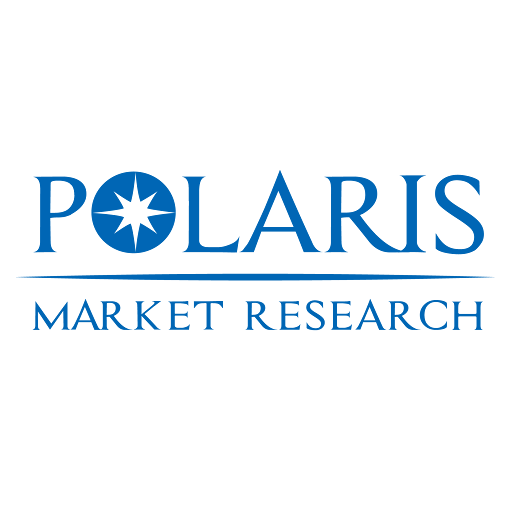The global recycled plastics market is experiencing transformative growth as governments, industries, and consumers align around sustainability, regulatory mandates, and circular economy principles. According to a newly released industry analysis, the global recycled plastics market was valued at USD 57.33 billion in 2024 and is projected to expand at a compound annual growth rate (CAGR) of 9.8% through 2030. This sustained upward trajectory reflects a fundamental shift in how plastic waste is perceived—not as a disposal problem, but as a valuable resource.
Driven by tightening environmental regulations, corporate sustainability commitments, and technological advancements in recycling infrastructure, the market is redefining global supply chains across packaging, automotive, construction, and textiles.
Market Overview: From Waste to Strategic Resource
Plastic pollution has emerged as one of the most pressing environmental challenges of the 21st century, with over 400 million tons of virgin plastic produced annually—much of it ending up in landfills or oceans. In response, the concept of a circular plastics economy has gained unprecedented traction. The recycled plastics market sits at the heart of this transition, converting post-consumer and post-industrial plastic waste into high-quality secondary raw materials.
Key drivers include Extended Producer Responsibility (EPR) laws in the European Union and North America, mandatory recycled content targets (e.g., EU’s requirement of 30% recycled content in plastic packaging by 2030), and voluntary pledges by major brands like Coca-Cola, Unilever, and Apple to incorporate significant percentages of post-consumer recycled plastics into their products.
Technological innovation is also playing a pivotal role. While traditional mechanical recycling remains dominant, advanced recycling technologies—including chemical recycling (pyrolysis, depolymerization, and solvolysis)—are enabling the processing of mixed, contaminated, or multi-layer plastics previously deemed non-recyclable. These innovations are expanding the scope and quality of recyclable output, particularly for food-grade and high-performance applications.
Consumer awareness and demand for sustainable products further amplify market momentum. A 2025 global survey found that 73% of consumers prefer brands using recycled packaging, creating a powerful commercial incentive for adoption.
Market Segmentation: Diverse Streams and Applications
The recycled plastics market is segmented by type, source, recycling process, and end-use industry.
By Type:
- Recycled Polyethylene Terephthalate (rPET) holds the largest market share, driven by its widespread use in beverage bottles, food containers, and polyester fibers.
- Recycled Polyethylene (rPE)—including HDPE and LDPE—is heavily used in packaging, pipes, and household goods.
- Recycled Polypropylene (rPP) is gaining ground in automotive interiors and reusable containers.
- Other significant types include recycled polystyrene (rPS) and recycled PVC (rPVC).
By Source:
The market is bifurcated into post-consumer recycled plastics and post-industrial recycled plastics. Post-consumer waste is the fastest-growing segment due to municipal collection programs and EPR schemes, while post-industrial scrap remains a stable, high-purity feedstock from manufacturing operations.
By Recycling Process:
- Mechanical recycling accounts for over 85% of current capacity, involving sorting, washing, shredding, and re-pelletizing.
- Chemical recycling, though still nascent, is the fastest-growing segment, projected to grow at over 18% CAGR, as it enables true circularity for complex plastic streams.
By End-Use Industry:
- Packaging dominates with nearly 50% market share, fueled by brand owner commitments and regulatory pressure.
- Textiles (e.g., recycled polyester clothing) and automotive (lightweight, sustainable interiors) are high-growth sectors.
- Building & construction increasingly uses recycled plastics in decking, insulation, and piping.
Read More @ https://www.polarismarketresearch.com/industry-analysis/recycled-plastics-market
Regional Analysis: Policy and Infrastructure Shape Global Dynamics
Europe leads the global recycled plastics market in terms of per capita recycling rates and regulatory stringency. The EU’s Circular Economy Action Plan, Single-Use Plastics Directive, and Packaging and Packaging Waste Regulation (PPWR) have created a robust policy framework. Countries like Germany, France, and the Netherlands boast advanced collection and sorting infrastructure, making Europe the most mature market.
North America follows closely, with the U.S. witnessing accelerated investment in domestic recycling capacity. State-level mandates—such as California’s requirement for 30% recycled content in plastic bottles by 2028—and federal initiatives like the National Recycling Strategy are driving growth. Canada’s ban on harmful single-use plastics further supports regional demand.
Asia-Pacific represents the fastest-growing region, propelled by rapid urbanization, rising plastic consumption, and government action. India’s Plastic Waste Management Rules, Japan’s container deposit schemes, and China’s post-"National Sword" policy shift toward domestic recycling are key catalysts. However, infrastructure gaps and informal waste sectors remain challenges.
Latin America and the Middle East & Africa are in earlier stages but showing promise. Brazil and Mexico are implementing EPR frameworks, while Gulf nations like the UAE are investing in recycling hubs as part of broader sustainability visions (e.g., UAE Net Zero 2050).
Key Companies: Scaling Innovation and Integration
The recycled plastics market features a mix of global chemical giants, specialized recyclers, and vertically integrated players building closed-loop systems.
Leading companies include:
- Veolia Environnement (France): A global leader in waste management and recycling, operating advanced sorting and reprocessing facilities across Europe and North America.
- Suez SA (France): Offers end-to-end circular solutions, including high-purity rPET and rPE production for food-grade applications.
- Borealis AG (Austria): Integrates recycled feedstocks into its polyolefin portfolio through its Borcycle™ technology, serving automotive and packaging clients.
- Dow Inc. (USA): Partners with recyclers and invests in chemical recycling ventures to incorporate circular polymers into its product lines.
- LyondellBasell (Netherlands/USA): Produces Circulen™ Revive polymers from recycled plastics, targeting consumer goods and healthcare sectors.
- Indorama Ventures (Thailand): One of the world’s largest rPET producers, with a global footprint and partnerships with major beverage brands.
- ALPLA Group (Austria): A packaging specialist producing bottles with up to 100% recycled content, emphasizing plastic circularity initiatives.
- Eastman Chemical Company (USA): Pioneering molecular recycling (methanolysis) to produce premium recycled polyesters for textiles and packaging.
More Trending Latest Reports By Polaris Market Research:
Ecotoxicological Studies Market
Male Urinary Incontinence Market
